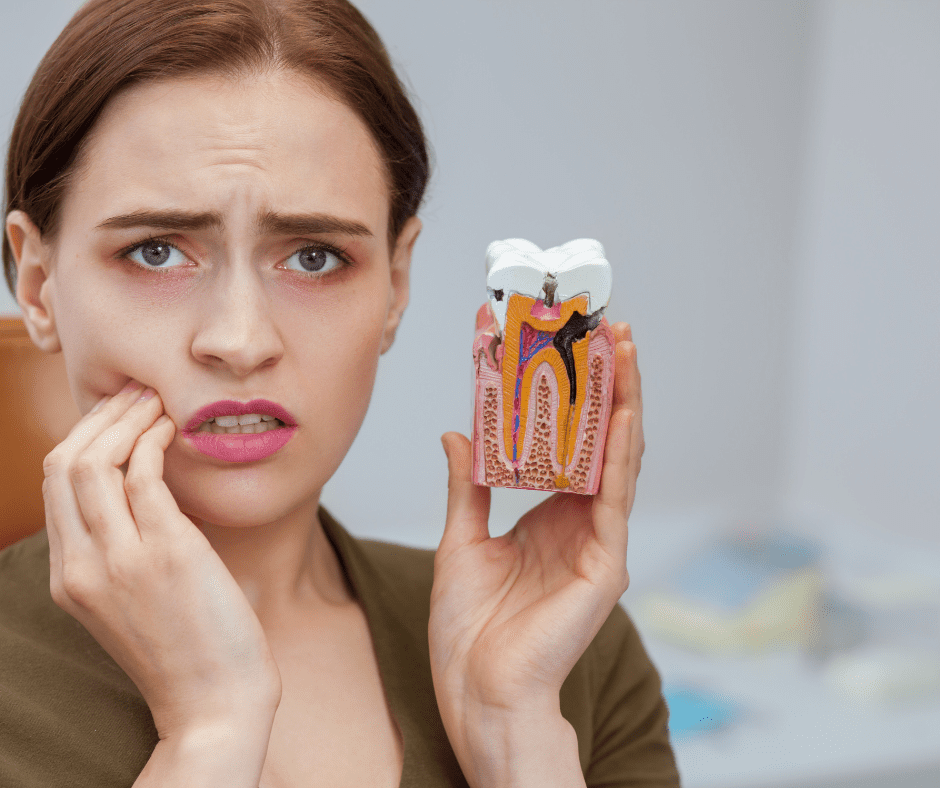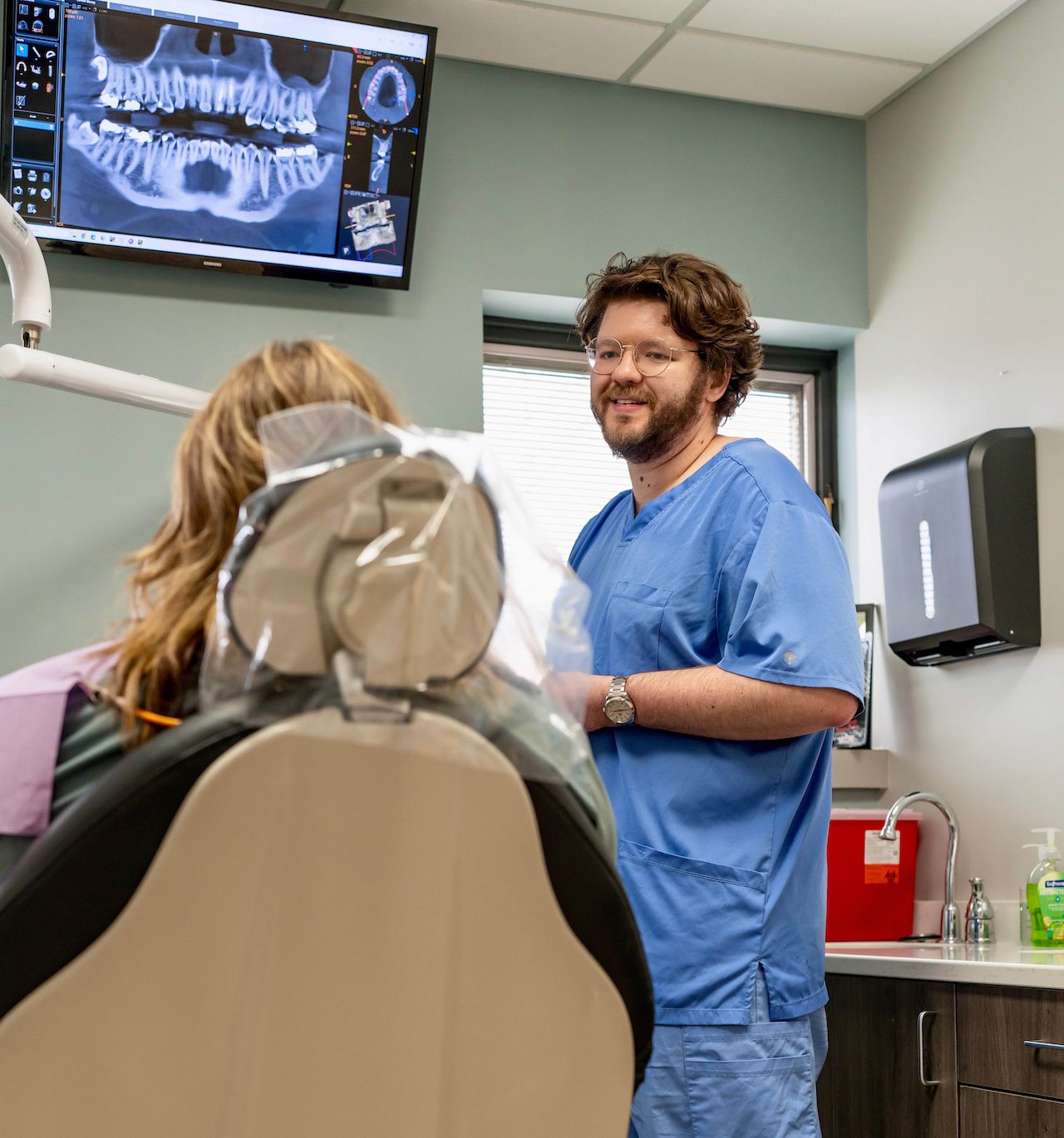What Causes Cavities and How You Can Prevent Them
Cavities, or dental caries, are among the most prevalent oral health problems people face. If you’ve ever experienced tooth sensitivity or pain or noticed a dark spot on your tooth, you might have wondered, “What causes cavities?” At Emergency Dental of St. Louis, we aim to educate our patients about how cavities develop and, most importantly, how to prevent them.
What Leads to Cavities?
Cavities form when acids produced by bacteria in your mouth attack the enamel—the protective outer layer of your teeth. Over time, this process causes enamel to erode, leading to tiny holes or cavities. Here are some of the main contributors to cavity formation:
- Inadequate Oral Care
Failing to brush and floss consistently allows plaque—a sticky bacterial film—to build up. When left untreated, plaque hardens into tartar, which can only be removed by a dentist. Both plaque and tartar contribute to acid production that wears down your enamel. - Sugary and Starchy Diets
Frequent consumption of sugary and starchy foods, such as candies, sodas, and bread, creates the ideal environment for bacteria to thrive. These bacteria feed on sugars, producing acids that weaken your enamel and increase the likelihood of cavities. - Dry Mouth
Saliva helps wash away food particles and neutralize acids. When your mouth lacks sufficient saliva—due to medications, dehydration, or health conditions—bacteria and acids can linger, significantly raising your risk of tooth decay. - Tooth Structure and Positioning
Molars and premolars, with their deep grooves, are more susceptible to cavities. Additionally, crowded or misaligned teeth can make thorough cleaning more challenging, allowing bacteria to accumulate in hard-to-reach areas. - Aging and Genetics
As you age, your enamel naturally wears down, making your teeth more vulnerable to cavities. Genetics also plays a role; some people may inherit softer enamel or higher susceptibility to decay.
Steps to Prevent Cavities
Fortunately, cavities are highly preventable with the proper oral care practices. Incorporating the following habits into your routine can safeguard your smile:
- Maintain Excellent Oral Hygiene
Brush twice daily with fluoride toothpaste and floss daily to remove plaque and food particles. Don’t forget to clean your tongue, where bacteria often hide. - Limit Sugary Snacks
Cut back on sugary and acidic foods. If you indulge, rinse your mouth with water or brush your teeth shortly afterward to minimize acid exposure. - Stay Hydrated
Drink plenty of water to keep your mouth moist and encourage saliva production. Staying hydrated also helps rinse away food particles and bacteria. - Schedule Regular Dental Visits
Routine dental checkups allow your dentist to detect and treat cavities early. Professional cleanings can also remove tartar buildup that daily brushing can’t. - Explore Preventative Treatments
Dental sealants offer additional protection for teeth with deep grooves. These thin coatings shield vulnerable areas from bacteria and food particles, making them an excellent option for cavity-prone individuals.
FAQ: What Causes Cavities and How You Can Prevent Them
Q: How do I know if I have a cavity?
A: Common symptoms include tooth sensitivity, visible holes, discoloration, or chewing discomfort. If you notice these signs, please ask your dentist immediately.
Q: Can a cavity heal naturally?
A: Once a cavity forms, it cannot heal on its own. However, fluoride treatments can sometimes reverse the early stages of enamel erosion. For advanced decay, fillings or other dental procedures are necessary.
Q: Does sugar always cause cavities?
A: While sugar is a primary culprit, acidic foods, poor oral hygiene, and dry mouth are also significant factors. Anything that promotes plaque buildup or enamel erosion can lead to cavities.
Q: Can untreated cavities harm my overall health?
A: Yes. Untreated cavities can progress to infections or abscesses, potentially spreading bacteria to other areas of the body and leading to serious complications.
Conclusion: What Causes Cavities and How You Can Prevent Them
Cavities are a common issue, but they’re preventable with proactive care. By understanding their causes and taking simple steps—like brushing, flossing, staying hydrated, and visiting your dentist—you can keep your teeth healthy for years.
If you suspect you have a cavity or need a dental checkup, contact Emergency Dental of St. Louis today. Our team is here to help you achieve and maintain a radiant, cavity-free smile!
Stay up-to-date with the latest in dental health and wellness by connecting with us on social media! Follow us on Instagram and Facebook for regular updates, tips, and insights to keep your smile bright and healthy. Join our community today and be a part of our journey towards better oral health.

